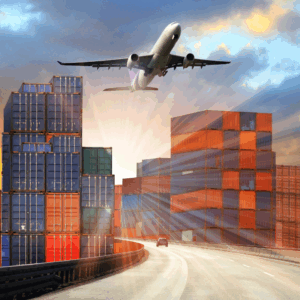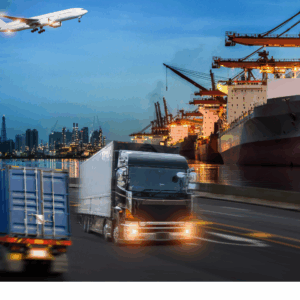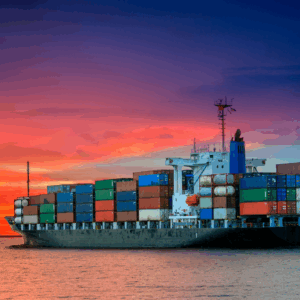 Amazon FBA (Fulfillment by Amazon) has dramatically changed how e-commerce businesses scale globally. It allows sellers to send their inventory to Amazon fulfillment centers, where Amazon handles storage, packaging, and shipping to customers. However, there’s a common misunderstanding: Amazon does not handle international freight. Getting your products to an Amazon warehouse is entirely your responsibility.
Amazon FBA (Fulfillment by Amazon) has dramatically changed how e-commerce businesses scale globally. It allows sellers to send their inventory to Amazon fulfillment centers, where Amazon handles storage, packaging, and shipping to customers. However, there’s a common misunderstanding: Amazon does not handle international freight. Getting your products to an Amazon warehouse is entirely your responsibility.
This is where freight forwarders come in. Whether you import from China, India, or anywhere else, freight forwarders coordinate transportation, customs, and Amazon compliance, saving you time, money, and mistakes. In this guide, we’ll explain what they do, when you need one, and how to choose the right partner to grow your Amazon FBA business.
What Is Amazon FBA—and What It’s Not
Amazon FBA enables sellers to outsource storage, order fulfillment, customer service, and returns. Once your goods are in an Amazon fulfillment center, Amazon picks, packs, and ships products directly to customers.
However, Amazon is not a freight forwarder. They don’t help you move inventory from your manufacturer or supplier to their warehouses. You must handle that logistics chain yourself, including transportation, documentation, customs, palletizing, and Amazon’s strict delivery rules.
This is where many sellers encounter difficulties. Managing international freight requires knowledge of logistics, customs regulations, packaging standards, and scheduling. A freight forwarder makes that entire process easier and more efficient.
What Is a Freight Forwarder?
A freight forwarder is a logistics expert who arranges and coordinates the movement of goods from origin to destination. For Amazon FBA sellers, this means managing shipments from suppliers, often overseas, directly to Amazon’s fulfillment centers.
Freight forwarders handle:
- Booking space on ships, planes, or trucks
- Comparing freight quotes across air, ocean, and ground
- Consolidating cargo from multiple suppliers
- Preparing customs documents like the commercial invoice, packing list, and SLI
- Managing export and import clearance
- Scheduling deliveries to Amazon warehouses
- Ensuring packaging, labeling, and palletization meet FBA standards
- Tracking shipments and resolving delays
- Offering cargo insurance
With their expertise, freight forwarders make international shipping simpler, faster, and more reliable.
Why You Need a Freight Forwarder for Amazon FBA
If you’re shipping internationally, working with a freight forwarder is almost essential. Here’s why:
- Amazon won’t do it for you. You’re responsible for getting your inventory to their warehouses.
- International logistics is complex. Without experience, it’s easy to make mistakes that can cause delays or result in financial losses.
- Amazon has strict requirements. Mislabeling, incorrect pallet sizes, or delivery without an appointment can led to rejected shipments.
- Customs and compliance are critical. A freight forwarder ensures your documents and declarations are accurate to avoid border issues.
- Cost control and efficiency. Freight forwarders can consolidate shipments and get better rates by leveraging scale.
A freight forwarder acts as your logistics partner, ensuring that every shipment meets compliance, arrives on time, and fits your budget.
Freight Forwarder Services for Amazon FBA Sellers
Freight forwarders provide a full-service logistics solution tailored for FBA. These include:
- Freight Quotes & Booking
They compare and secure the best rates for air, ocean, and truck transport—often with consolidated shipping options to reduce costs.
- Documentation
They prepare all the required documents:
- Commercial Invoice
- Packing List
- Bill of Lading (BOL)
- Shipper’s Letter of Instruction (SLI) for US exports
- Customs declarations and HS codes
- Customs Clearance
Forwarders file customs paperwork, pay duties and taxes, and ensure your goods pass through import/export controls without issues.
- FBA Prep Services
This includes labeling boxes and pallets according to Amazon’s guidelines, shrink-wrapping, and ensuring the dimensions and weight meet carrier and Amazon standards.
- Delivery Scheduling
Freight forwarders book delivery appointments with Amazon and manage the timing of warehouse slots to avoid penalties or rejected loads.
- Shipment Tracking
Real-time tracking, including milestone updates and alerts for delays or missing documents, ensures transparency throughout the journey.
- Insurance & Risk Management
They offer optional cargo insurance to protect your goods from loss or damage during transit.
Can You Ship to Amazon FBA Without a Freight Forwarder?
Yes, but it’s not recommended unless you’re experienced and managing tiny shipments. Without a freight forwarder, you’ll need to:
- Book carriers manually
- Manage multiple vendors (customs brokers, truckers, etc.)
- Understand and follow Amazon’s complex FBA inbound policies
- Handle documentation and customs on your own
- Monitor tracking and communication across time zones
For growing sellers, this DIY approach often leads to costly errors, delays, and stress. Freight forwarders mitigate those risks, allowing you to focus on selling.
How Much Does a Freight Forwarder Cost?
The cost depends on several factors:
- Shipping mode: Air freight is faster but more expensive; ocean freight is cheaper but slower
- Weight and volume: Higher dimensions cost more, especially for air
- Origin and destination
- Customs duties and taxes
- Additional services like FBA prep, consolidation, or insurance
Most freight forwarders offer custom quotes. While using one adds an upfront cost, their efficiency often lowers your total shipping expense by avoiding delays, rejected loads, and compliance issues.
Real-World Example: ExFreight’s Smart Freight Management
ExFreight is a digital freight forwarding platform built for modern logistics. Sellers can quote, book, upload documents, and track shipments all from one dashboard. Their system ensures FBA compliance, schedules delivery appointments, and alerts you about delays or missing documents, giving you complete control over your supply chain.
Unlike traditional forwarders, ExFreight provides visibility, automation, and scalability, supporting businesses from small sellers to global brands.
Frequently Asked Questions (FAQ)
Is Amazon a freight forwarder?
No. Amazon only handles logistics after your inventory arrives. You’re responsible for transporting it to Amazon Fulfillment Centers.
What is Amazon FBA delivery?
It refers to your responsibility to obtain inventory from your supplier or manufacturer and deliver it to Amazon’s warehouse, adhering to their labeling and scheduling rules.
How can I track my shipment?
With platforms like ExFreight, tracking is available via GPS and timeline milestones. You’ll see real-time status updates and receive alerts for any issues that arise.
What does “delay” mean in freight shipping?
A delay could mean late pickup, missing documents, customs issues, or weather-related disruptions. It doesn’t always result in late delivery, but it does require attention.
What documents do I need to ship to Amazon FBA?
At a minimum, a commercial invoice, packing list, and, in the United States, a Shipper’s Letter of Instruction (SLI) for exports exceeding $2,500. Depending on the goods, you may need certificates of origin or compliance.
Conclusion
Shipping inventory to Amazon FBA isn’t as simple as placing an order. It involves international logistics, customs clearance, documentation, and strict Amazon requirements. Trying to manage all this yourself increases risk and can cost you both money and credibility.
Freight forwarders bridge the gap between your supplier and Amazon. They streamline the shipping process, ensure full compliance, and give you the freedom to scale. If you’re importing inventory for Amazon FBA, partnering with a reliable freight forwarder is not only innovative but also essential.
Ready to simplify your logistics? Start with ExFreight’s digital freight forwarding platform—get quotes, book transport, and track your cargo with complete control.






Leave A Comment
You must be logged in to post a comment.